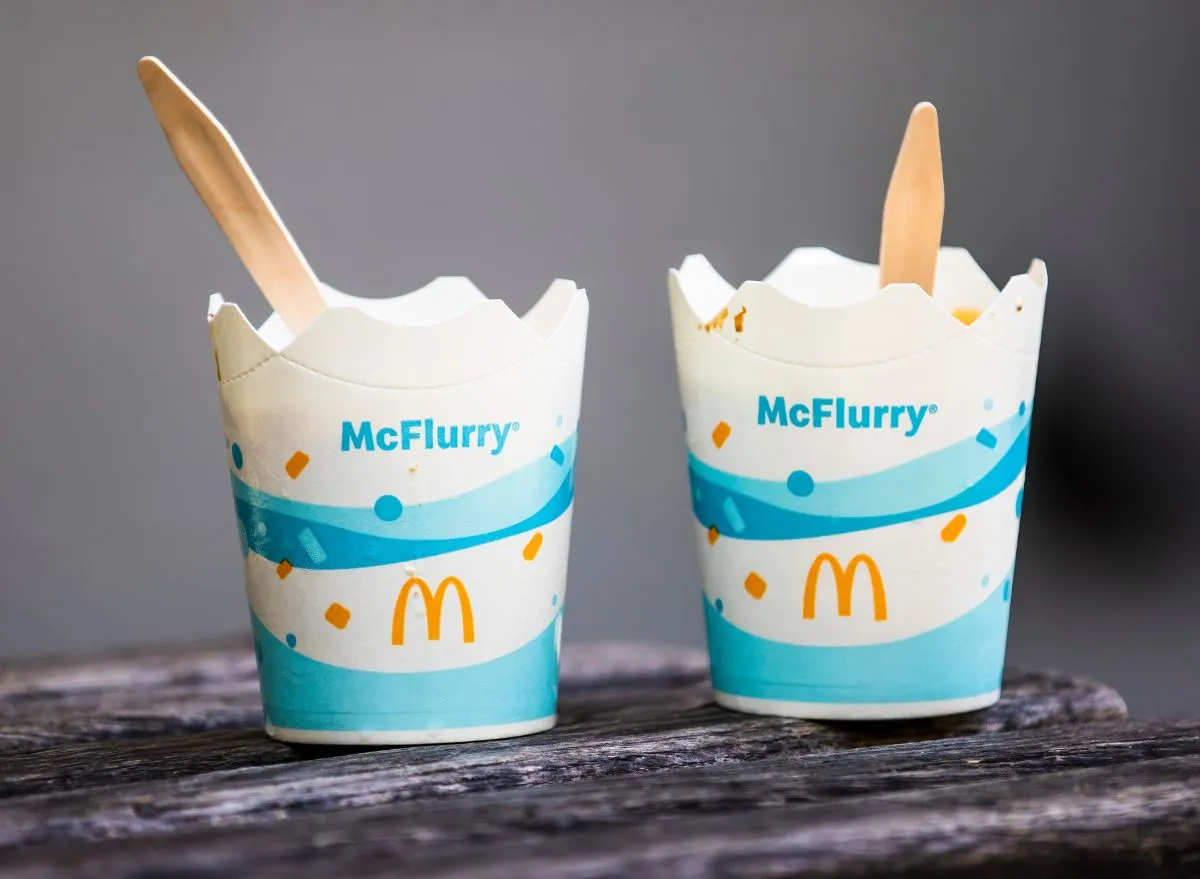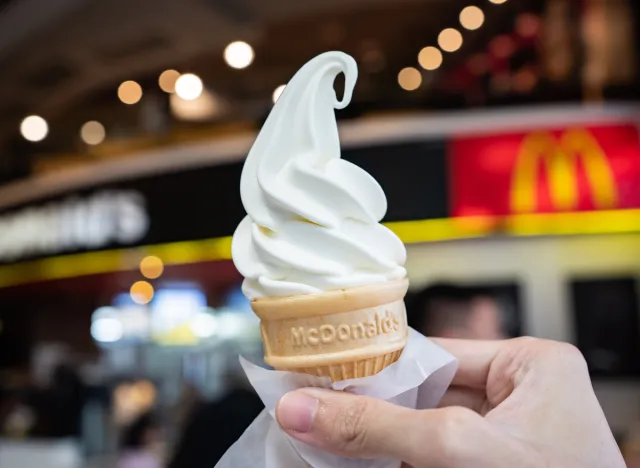McDonald's Ice Cream Machines Will Finally Be Fixed For Good—Here's Why

Fast-food customers have long voiced frustration with McDonald's ice cream machines. They are out of commission so frequently that there's even a website dedicated to tracking locations that are able to serve you a McFlurry at any given time. Now, the government has stepped in to fix the issue.
The U.S. Copyright Office just granted an exemption that will allow third parties to diagnose and fix commercial food preparation equipment such as McDonald's ice cream machines, the Verge reported. This is a major development because copyright law previously prohibited anyone but the manufacturer of the McFlurry machines (Taylor) from getting past their software locks and fixing them. In other words, the McFlurry machines will now be easier to fix and restore to order after they malfunction.
That forced reliance on the manufacturer has become a point of contention between McDonald's, its operators, and even the U.S. government. In a joint filing earlier this year supporting the exemption, the Federal Trade Commission and Justice Department (DOJ) noted that there tend to be long wait times for authorized soft serve machine repairers and they charge "over $300 per fifteen minutes." Meanwhile, restaurants can lose $625 in sales daily due to soft serve equipment breakdowns, the filing said.
Now that the exemption has been granted, McDonald's operators will be able to break through those locks and hire third parties to fix their machines without having to rely on Taylor. The new rule will officially take effect on Oct. 28, and will hopefully result in faster, more affordable fixes for the ice cream equipment.

Fans of McDonald's McFlurries and soft serve have the advocacy organization Public Knowledge and iFixit, a website that offers repair guides and supplies, to thank for this change. The two groups teamed up to file for the exemption with support from the FTC and the DOJ.
While the U.S. Copyright Office did not grant the full range of exemptions the organizations had requested for commercial and industrial equipment, Public Knowledge still celebrated the exemption for food preparation equipment.
"Today's recommendations are a victory for everyone: franchise owners, independent repair shops, and anyone who's had to bribe their kids with a chilly treat on lengthy road trips," Meredith Rose, senior policy counsel at Public Knowledge, said in a statement. "It's been a long and rocky road to secure a right to repair, and while there are plenty of dips and twists ahead, today's decision from the Copyright Office will lead to an overdue shake-up of the commercial food prep industry. There's nothing vanilla about this victory; an exemption for retail-level commercial food preparation equipment will spark a flurry of third-party repair activity and enable businesses to better serve their customers."
Years before this exemption was granted, a company named Kytch attempted to provide its own solution to McDonald's broken ice cream machine problems. The company created a device that franchisees could install on their ice cream machines and use to surveil their inner workings and troubleshoot operational issues.
However, McDonald's sent an email to franchisees in 2020 warning them against using the devices, claiming they allow access to confidential data and pose a safety risk to workers. Sales dried up afterward, Wired reported, and Kytch later accused McDonald's in a lawsuit of purposefully driving it out of the market and spreading untrue information about its device's safety.









